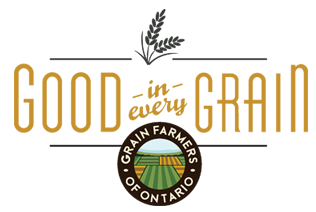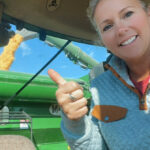Cover crops: great for soil and bees
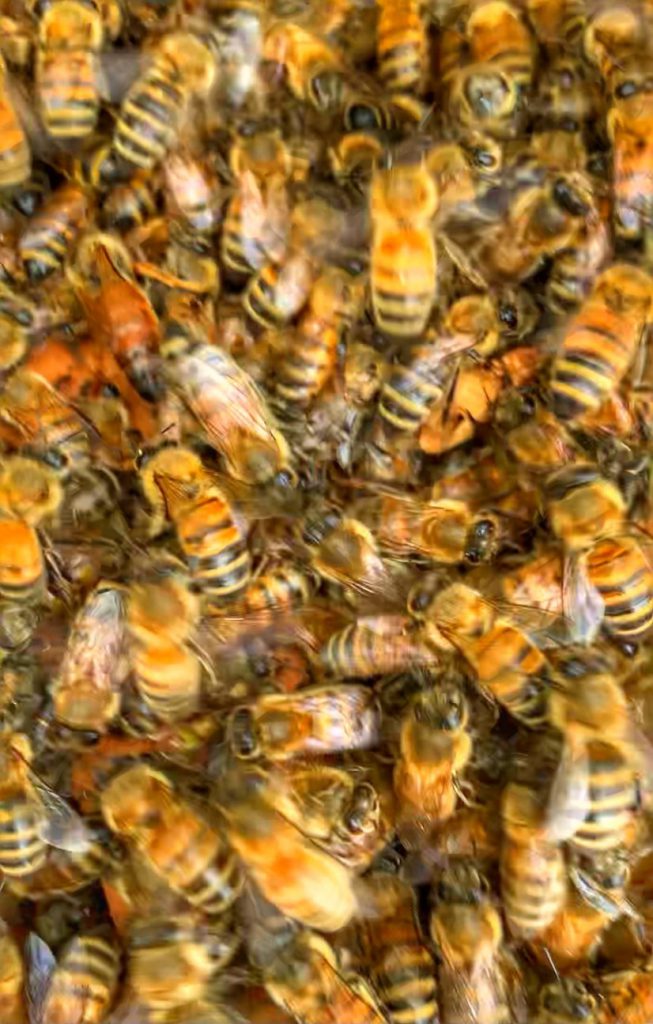
Cover crops have many direct environmental benefits including improving soil health, but cover crops have many benefits for Ontario’s bee population. They are great for soil and bees!
Consumers are paying more and more attention to how their food is produced and are actively concerned with making sure that their products come to the market sustainably. Ontario’s grain farmers recognize the demand from Ontario consumers to produce grains in an environmentally sustainable way.
One practice that grain farmers have been implementing is the use of cover crops. Previously, we’ve talked about the benefits of cover crops to soil health (read about them here) but did you know that certain cover crops also have tremendous benefits for another key component to environmental health?
Honeybees and Ontario’s 400 native bee species such as bumble bees, squash bees, mason bees and leafcutter bees are some examples of pollinators that benefit from certain flowering cover crops.
Cover crops
Cover crops are planted by farmers for their benefits to soil health and their natural ability to help suppress unwanted weeds. But cover crops can have much larger environmental benefits: they can provide Ontario pollinators with habitats, flowering cover crops can provide pollen and nectar resources to help maximize the pollinator’s health and reproductive potential, and finally, cover crops can provide enhanced foraging opportunities for certain wild bee species.
A cover crop will do much better when it is covered with bees, because the bees are pollinating that cover crop, to make sure that lots of good things are happening for the cover crop above ground, which will make sure that all the good stuff is happening underground as well
-Hugh Simpson, beekeeper
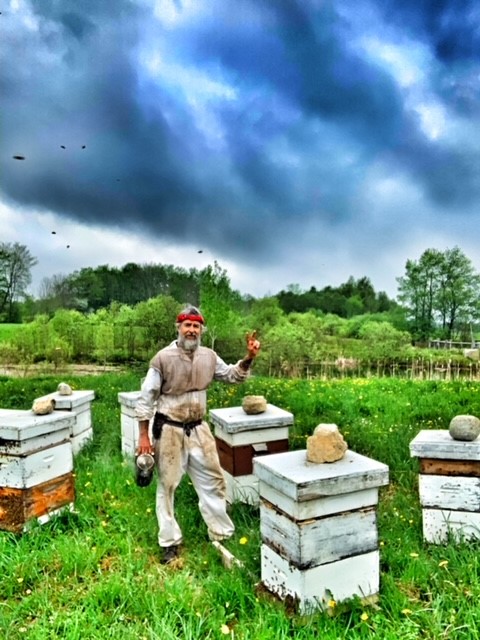
Hugh Simpson, Beekeeper Proprietor at Osprey Bluffs Honey Co, spoke to us about how Ontario pollinators, specifically bees, can benefit from the flowering cover crops that are planted by grain farmers; “cover crops are very connected to pollinators,” Simpson states.
Simpson receives lots of requests from farmers to host honeybees on their farm in the form of beehives, to increase their environmental sustainability. Beehives can help the farmer’s cover crop to flourish and thrive because of “the honeybee’s ability to pollinate more efficiently and effectively than other wild bee species”, states Simpson.
“Having bees flying around cover crops is a sign that good things are happening,” states Simpson. “Bees will go to wherever there is something good, and if there are bees flying around a farmer’s property, that is generally a sign that there is something good for them there.” In this case it is that the flowering cover crops are attracting pollinators.
Having bees on the property is one of the many ways for a farmer to signify that they are following environmentally sustainable practices. Because of their efforts to be environmentally sustainable they have attracted a wild bee population or have the environmental capacity to host a community of honeybee.
If a farmer does decide that they are going to use cover crops they must decide what kinds of cover crops they wish to use, how they will benefit their grain operation and how do pollinators fit into that decision.
Simpson states “a cover crop will do much better when it is covered with bees, because the bees are pollinating that cover crop, to make sure that lots of good things are happening for the cover crop above ground, which will make sure that all the good stuff is happening underground as well.”
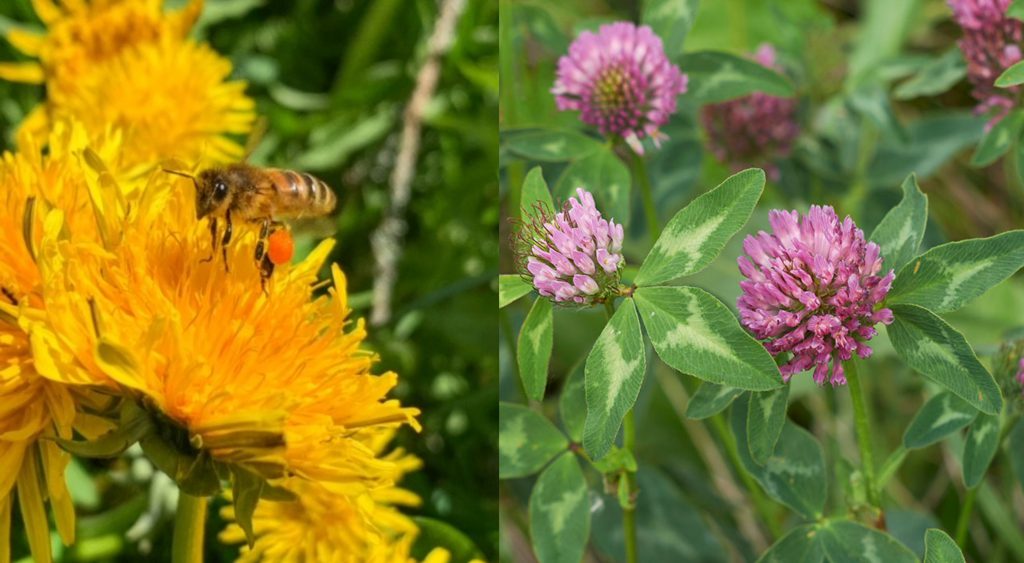
Pollinators such as bees help the flowering cover crops to reproduce in the form of seeds. Bees are critical to a healthy cover crop and when a healthy cover crop does well, it helps to improve the soil. This healthy soil lays the framework for Ontario grains to grow strong and healthy.
Cover crops farmers use that help the soil and that lots of flowering plants that attracts bee and other pollinators are crops like buckwheat, red clover, black-eyed Susan, daisies! These cover crops could help the pollinators to maximize the benefits to the soil.
Sustainable farming, and protecting our resources while growing quality food is a complex topic. Farmers are choosing what works best for their operation while still trying to remain protective of our environment. Planting flowering cover crops that will benefit their farms and the local pollinator population is one way to mutually reap the benefits of this farm practice.
Osprey Bluffs Honey
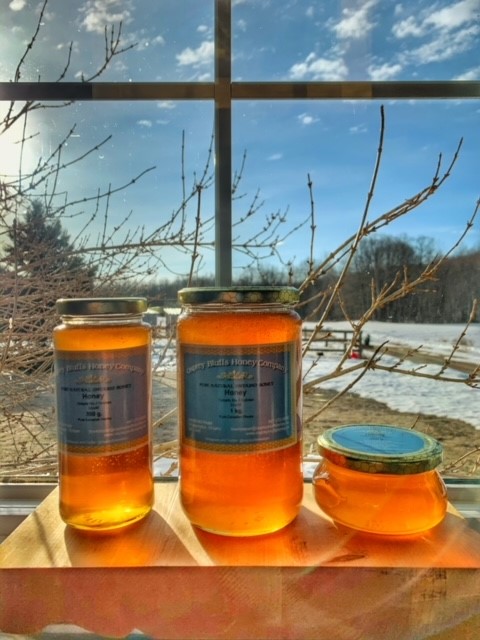
Simpson’s Osprey Bluffs Honey is a wholesale producer for chefs, bakers, and commercial kitchens. They also sell to higher end restaurants/ bakeries in the Collingwood area and in the GTA where Osprey Bluffs honey is a featured ingredient on the menu. Osprey Bluff’s customers enjoy the authentic farm story that goes with the taste and fragrance of our pure honey. They do also provide some Collingwood areas retailers with various products such as Lennox Farm market, Curries Farm Market, Dags and Willow Cheese Shop and Tesoro Restaurant and Bodega. In the GTA Osprey Bluffs Honey retail shop customers include The Cheese Boutique, Henrietta Lane, Hooked, and Bespoke Butchers these among others keep both Osprey Bluffs Honey and Single Bush Maple syrup on hand.
